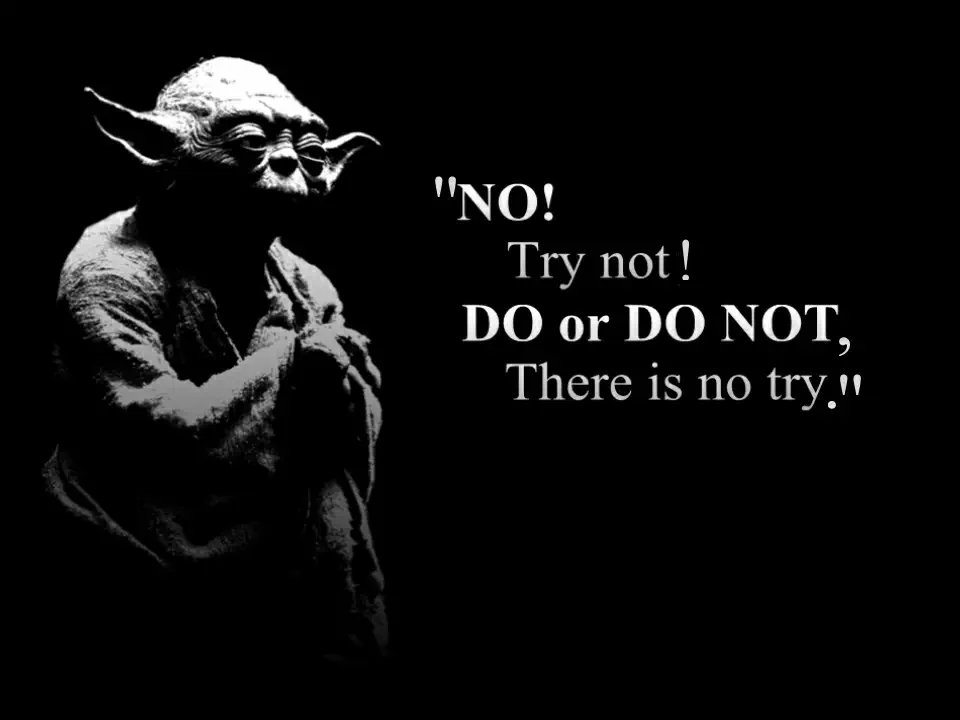Powerless Words and Technology
June 19, 2013 in Systems3 minutes
I was introduced by a colleague and mentor a few years ago to the concept of powerless words. Words like “try”, “but”, and “maybe/might”, among others, seem to be our mind’s way of protecting itself against the unknown. After all, we’re only human, right? We can’t control what the world throws at us, right?
I encourage you to read the article I linked to as well as this one, which the first article refers to. Instead of telling someone you will “try” to do something, tell them you WILL do it. Take the time to evaluate the action and make the commitment. If there’s a conflict, then bring it up and say you can’t do it - or at least provide an if….then that shows what it will take to allow you to make the commitment. You’ll be surprise how this new assertive verbiage improves your professional relationship with others.
This post would not be complete without some incredibly profound advice that everyone has heard but I know gets taken for granted often:
As much as this is a golden oldie in the nerd movie quote database, it is also profoundly valuable advice. I thought for a long time about how the concept of eliminating powerless words from one’s vocabulary could relate to the technology field, and the possibilities I found were pretty numerous
First off, many network engineers set their sights on the CCIE - like it or not, it’s a powerful certification that still holds a lot of respect, so it’s something to aspire towards in order to prove one’s mettle. I could say that I’m going to try and get the CCIE by next year, and I may or may not succeed - but if I set a goal, make it public and declare I will do this, then my chances of success are much higher.
Another example is in day-to-day interaction with technical and non-technical peers alike. Most of us have some kind of area of responsibility, and every day we get bombarded with requests to do X. Rather than give a light answer that protects us against the uncertainty of performing that action, take the time to evaluate the likelihood for success of the action, and communicate what it is that others can provide you to improve your chances of success.
I also want to be clear - failure happens, there is no doubt. In fact, failure is one of the best ways that we learn. The point is to commit to success - set a goal for yourself and make it happen.
